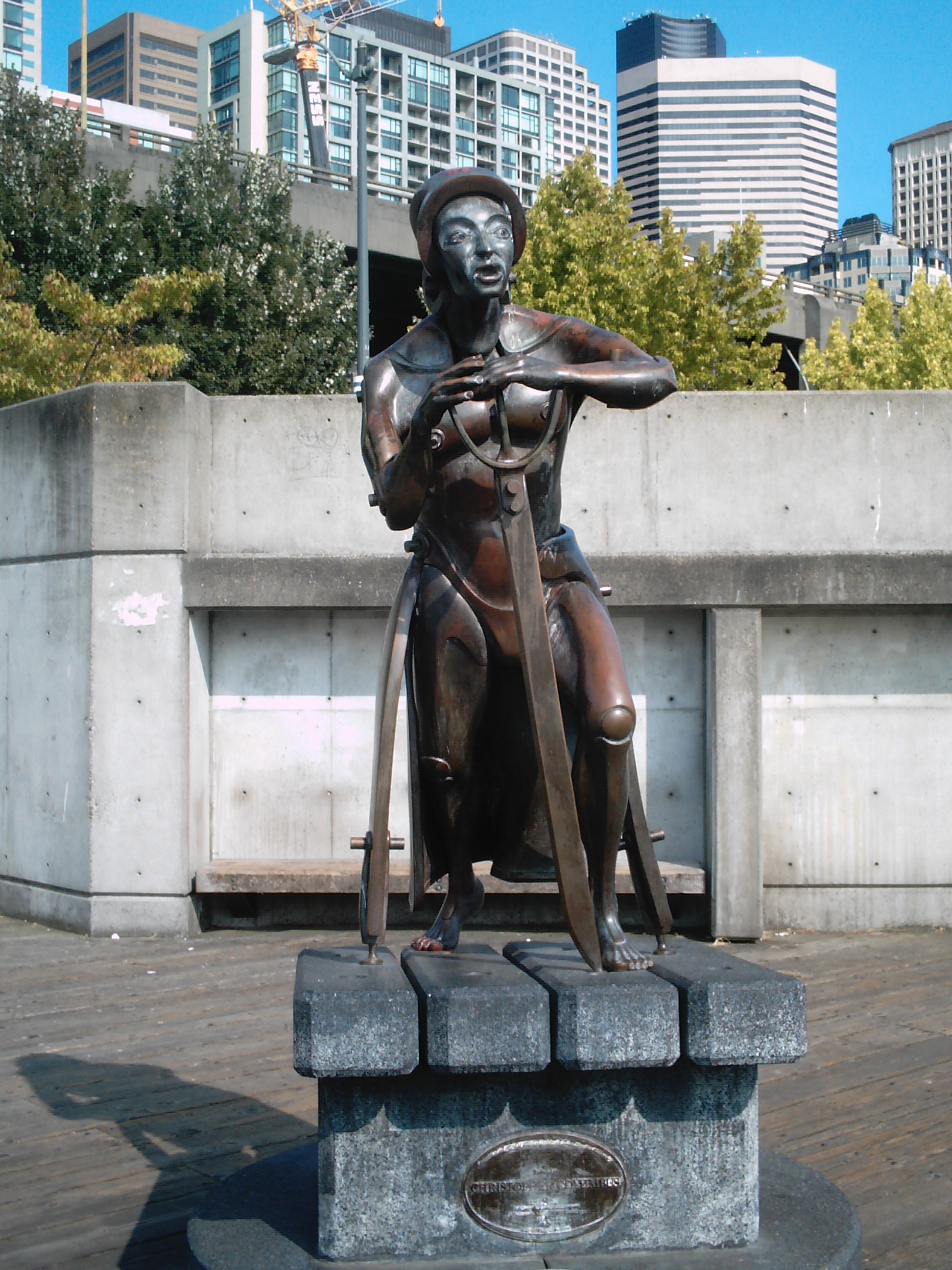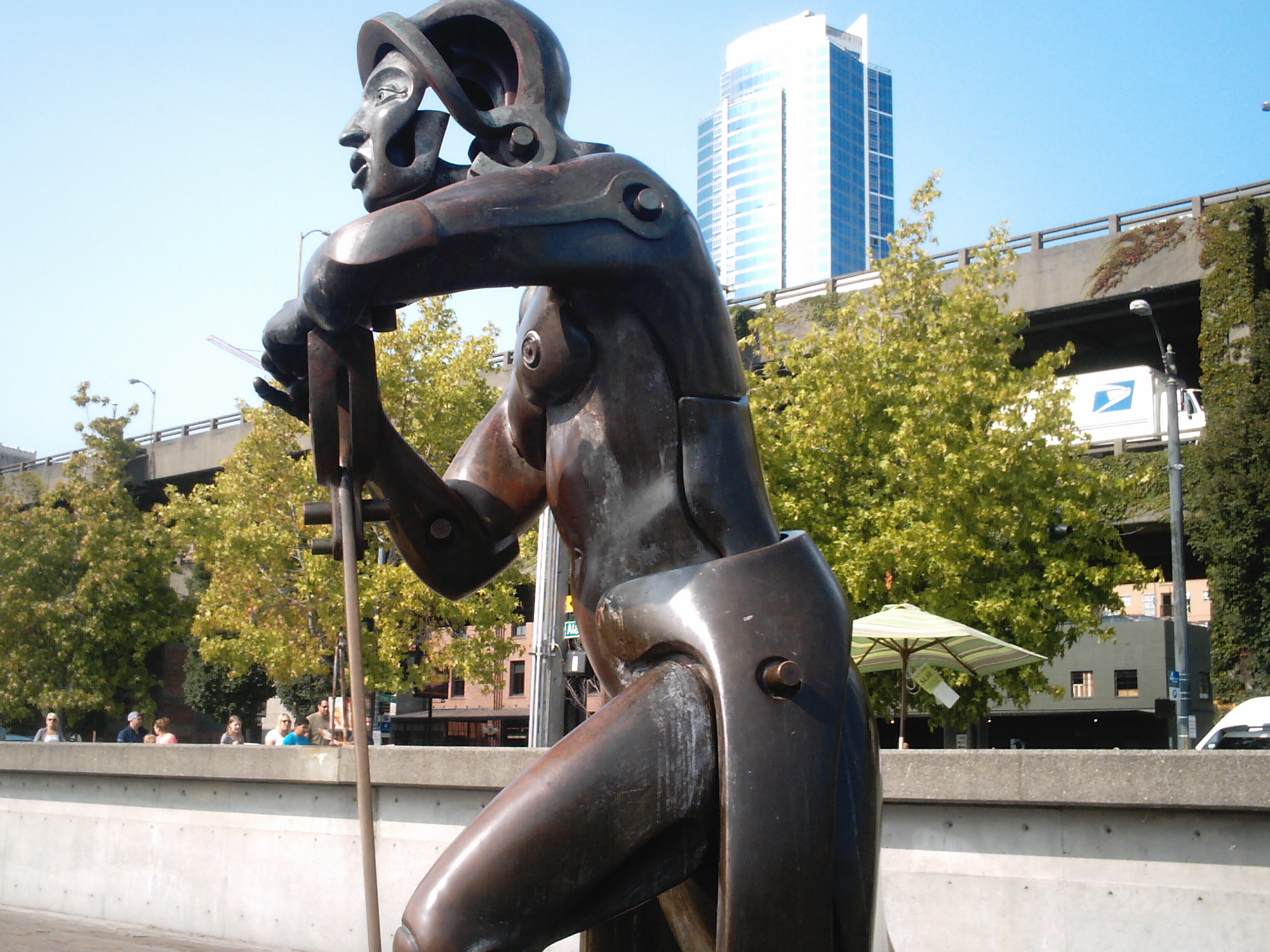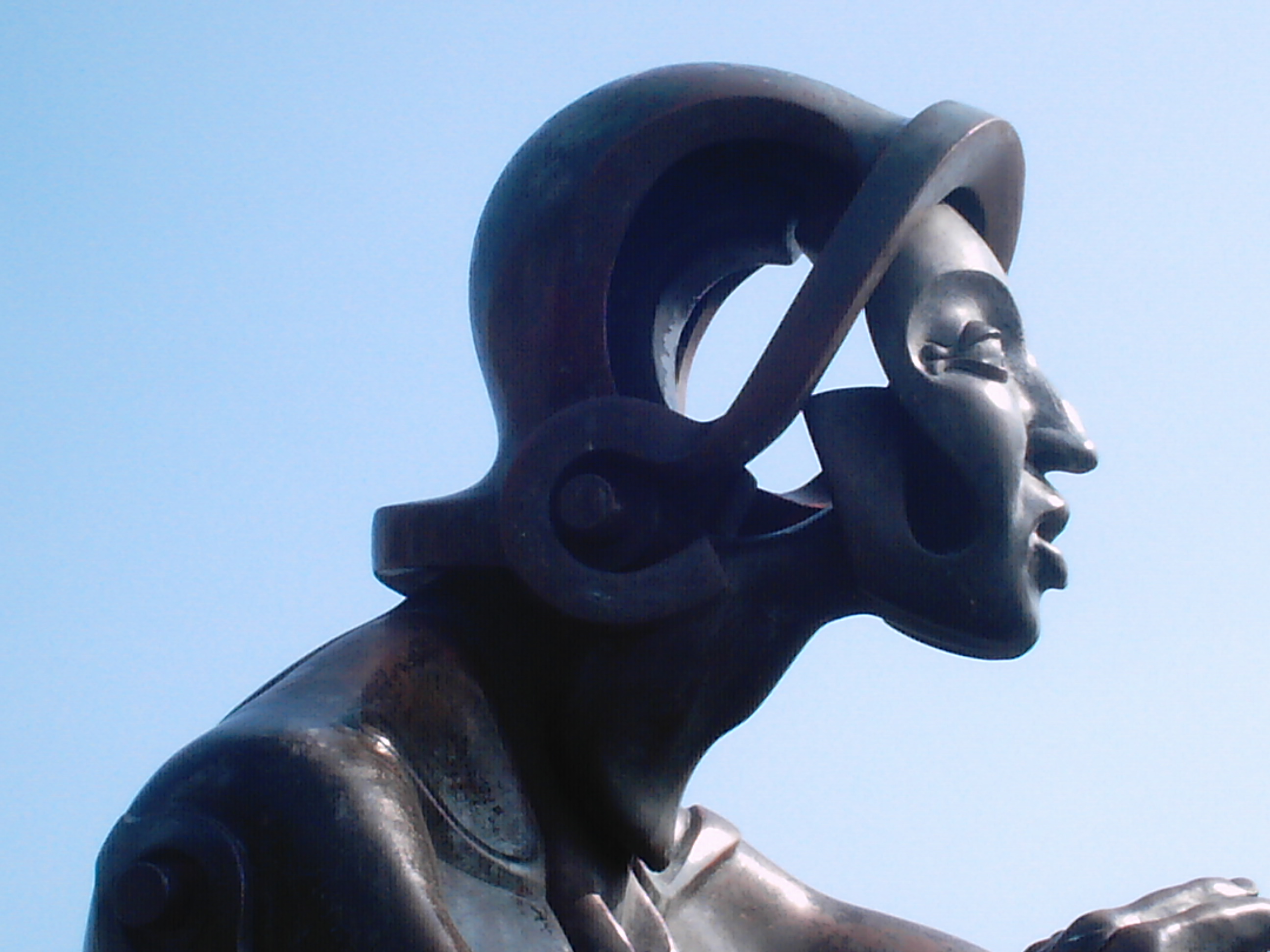The Columbus statue, staring out into the Sound down by the Aquarium, is not on anybody’s list of
“must-see’s” while in Seattle. And there is a reason for that. The statue “...is regarded
by some critics as the ugliest statue in the world.” In fact, the Seattle Arts Committee originally rejected
the statue, saying it didn’t meet their artistic standards, but they were overridden by the Seattle City Council, and
the statue found a home on the waterfront in 1978. (Seattle, Washington)

Indeed, the statue was so poorly received that Douglas Bennett, the statue’s sculptor, never received
an offer to sculpt again. And this was his first statue. Bennett’s daughter said that “...her father
wanted to depict Columbus as a lonely man who was still afraid the flat earth would drop off on his voyage to America.”
And the sculptor himself stated, “I was trying to reflect a Columbus whose crew had mutinied, some gone mad, looking
out for land and dangerous reefs in a howling storm the night they landed after 33 days at sea. I chose to depict tenacity
and courage — he was a dedicated S.O.B., also a madman.” (Gilmore) But is there
more than that? Was Bennett, whom we know so very little about, trying to depict some deeper meaning? Columbus,
by 1976 when the statue was commissioned, was no longer the universally loved hero we were led to believe he was up through
the 1960s. In fact, Columbus Day is currently the least popular of all the federal holidays. Only one in ten businesses even recognize that it
exists, other than perhaps as an excuse to have a sale. The day is seen as particularly offensive in places with large
native American populations, such as South Dakota, which changed Columbus Day to Native American Day in 1990. In fact,
the only places that seem to care about Columbus Day at all are those communities with large Italian-American populations,
and Seattle is not one of those. (McGeehan) True, the statue was
commissioned by Seattle’s Italian American community (Christopher Columbus), but did Bennett agree with them?
Consider this: What if a Jew were commissioned to make a statue of Hitler? Regardless of who was signing the check,
Bennett portrayed Columbus exactly as he saw him.

Notice, in particular, the machine like quality of the statue.

And notice how the face is no more than a mask and that the head is hollow.
To Bennett, Columbus was nothing more than a machine. A mindless, heartless, soulless machine. A personification
of the inevitable. This statue was not meant to be flattering, and it most certainly is not. And it was not meant
to be pretty. There is nothing beautiful about a machine of death.
|